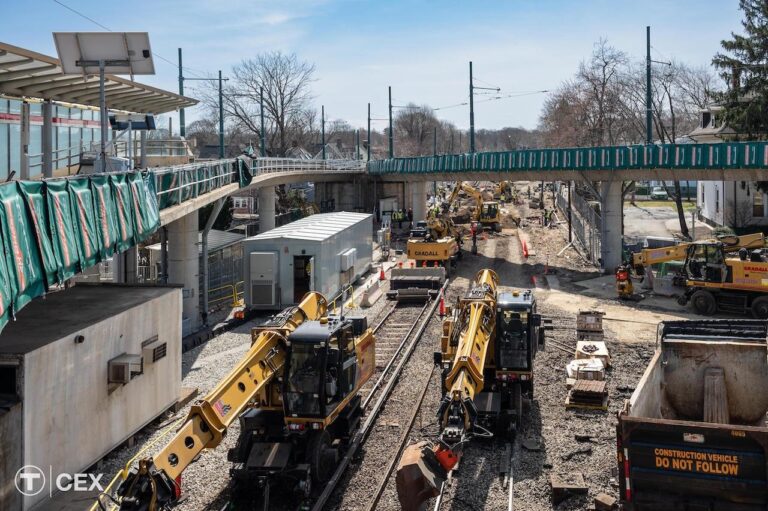The Massachusetts Bay Transportation Authority (MBTA) Board has officially approved a $9.8 billion capital plan aimed at expanding and enhancing the region’s transit infrastructure from 2026 to 2030.This ambitious investment underscores the MBTA’s commitment to modernizing its network, improving service reliability, and accommodating future ridership growth across commuter rail, light rail, and subway lines. The approval marks a notable milestone in the agency’s long-term strategy to address capacity challenges and support sustainable transportation development in Greater Boston.
Table of Contents
- MBTA Board Approves Major Funding Boost for System Modernization
- Key Infrastructure Projects and Service Expansions Detailed in New Plan
- Emphasis on Sustainability and Accessibility to Transform Commuter Experience
- Experts Recommend Prioritizing Timely Execution and Community Engagement
- In Conclusion
MBTA Board Approves Major Funding Boost for System Modernization
The MBTA Board has approved a sweeping $9.8 billion capital investment plan designed to transform the region’s public transportation infrastructure over the next five years. This unprecedented funding increase aims to accelerate modernization efforts across subway, bus, and commuter rail lines, ensuring improved reliability, accessibility, and rider experience. Key priorities include upgrading aging infrastructure, expanding fleet capacity, and implementing advanced technology systems to streamline operations and enhance safety.
Among the critical initiatives supported by the funding are:
- Expansion of rail and bus networks to accommodate growing demand and reduce congestion
- Replacement and refurbishment of outdated vehicles,including arrivals of new trains and buses equipped with modern amenities
- Investments in accessibility features,targeting stations and vehicles to better serve riders with disabilities
- Deployment of state-of-the-art signaling and interaction systems to increase operational efficiency
These strategic investments represent a major step toward redefining transit throughout Greater Boston,with an overarching goal to build a more resilient,sustainable,and user-friendly system that can meet the challenges of the coming decades.
Key Infrastructure Projects and Service Expansions Detailed in New Plan
The newly approved $9.8 billion capital plan for 2026-2030 sets an ambitious course for expanding and modernizing the MBTA’s infrastructure. This comprehensive framework prioritizes major upgrades across all transit modes, including critical track rehabilitations, station accessibility improvements, and replacement of aging rolling stock. Among the headline projects are extensive signal system overhauls and the introduction of more energy-efficient, next-generation vehicles designed to improve reliability and reduce environmental impact.
Significant service expansions are also outlined, featuring:
- Extension of the Green Line to Union Square, enhancing connectivity to under-served neighborhoods.
- Increased frequency on key commuter rail lines aimed at alleviating peak-time congestion.
- Implementation of advanced technologies for real-time arrival information and automated announcements system-wide.
- Upgrades to bus rapid transit corridors to shorten travel times and expand coverage.
These strategic investments are geared to prepare the MBTA for growth in ridership and to reinforce the transit network as the backbone of Greater Boston’s transportation future.
Emphasis on Sustainability and Accessibility to Transform Commuter Experience
Commitment to green initiatives underpins the MBTA’s ambitious $9.8 billion investment plan, prominently featuring eco-friendly technologies and infrastructure upgrades designed to substantially reduce the transit system’s carbon footprint. The rollout of all-electric buses and the enhancement of energy-efficient rail systems are expected to drive down emissions, while sustainable materials and practices will be integrated into station renovations and new constructions. This strategic focus aligns with regional goals for climate resilience and clean transportation, promising a future where daily commutes contribute to environmental preservation.
Equally transformative is the MBTA’s intensified drive to ensure universal accessibility and inclusivity. Comprehensive station upgrades will incorporate cutting-edge ADA-compliant features, such as tactile guidance paths, audible announcements, and barrier-free entry points, making travel safer and easier for riders with disabilities. The capital plan mandates ongoing community engagement and feedback loops aimed at addressing equity gaps, thereby fostering a more welcoming transit environment for all users. Key enhancements include:
- Expanded elevator and escalator availability
- Improved real-time information systems with accessible formats
- Design innovations promoting seamless transfers and reduced wait times
Experts Recommend Prioritizing Timely Execution and Community Engagement
Industry experts emphasize that the success of the MBTA’s ambitious $9.8 billion capital plan hinges on strict adherence to project timelines. Delays in execution could not only inflate costs but also erode public confidence in the transit authority’s ability to deliver essential infrastructure improvements.Stakeholders recommend adopting advanced project management frameworks that ensure clear milestone tracking, rapid issue resolution, and continuous risk assessment throughout the 2026-2030 expansion period.
Equally critical is robust community engagement, with specialists urging the MBTA to foster transparent communication channels and inclusive dialogue with residents and local businesses impacted by construction and service changes. Key recommendations include:
- Regular public forums to gather feedback and address concerns promptly
- Collaborative planning workshops involving diverse community representatives
- Accessible updates via digital platforms and local media to keep commuters informed
Experts agree that integrating community insights not only mitigates potential disruptions but also builds broader support for the transformative transit initiatives ahead.
In Conclusion
The MBTA’s approval of the $9.8 billion capital plan marks a significant milestone in the region’s transit development, setting the stage for transformative projects between 2026 and 2030. As the authority embarks on this ambitious expansion, riders and communities alike can anticipate improved service, enhanced infrastructure, and a stronger public transportation network aimed at meeting the demands of a growing population. Moving forward,the focus will be on effective implementation and oversight to ensure that these investments deliver on their promise of a more accessible and efficient transit system for all.

